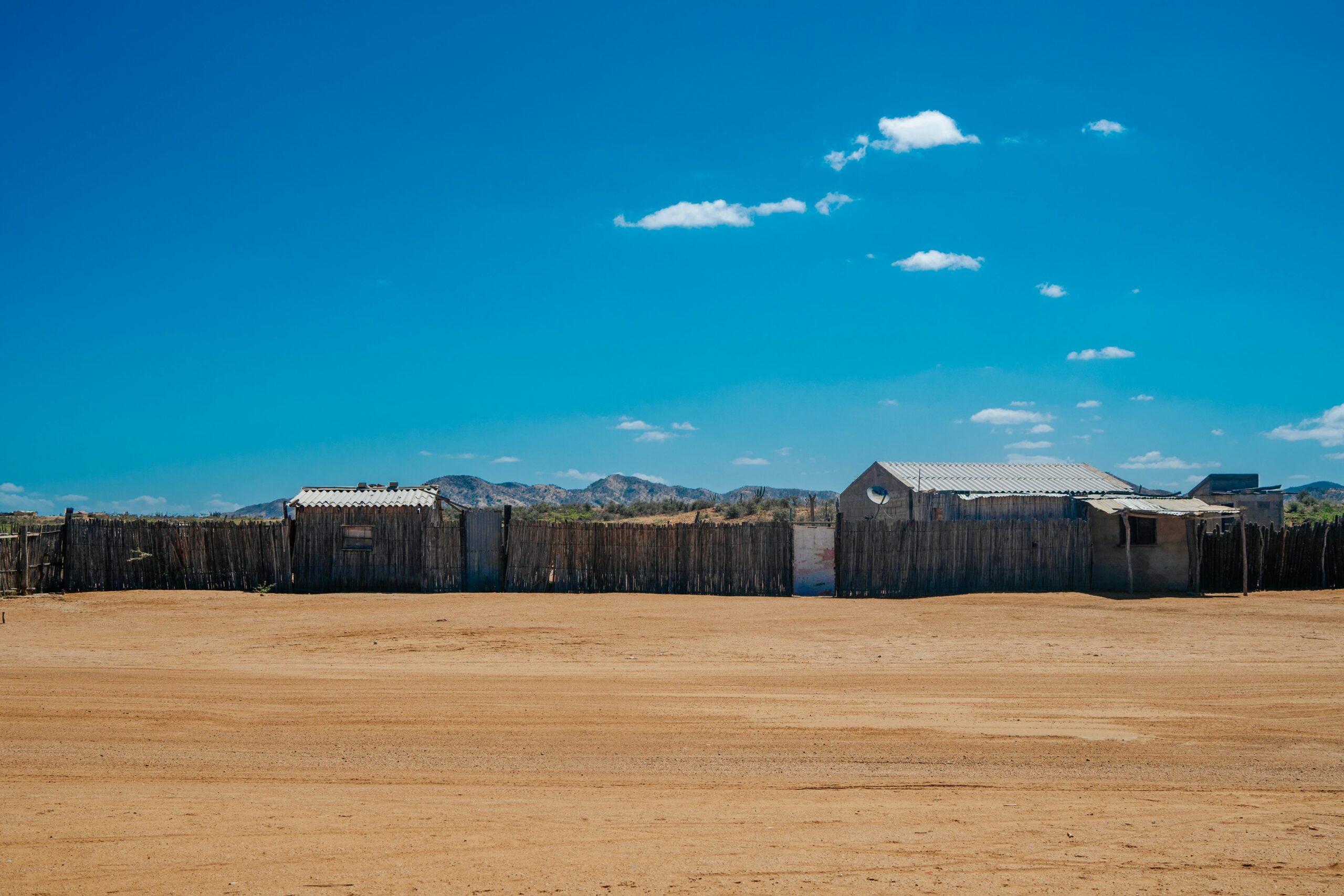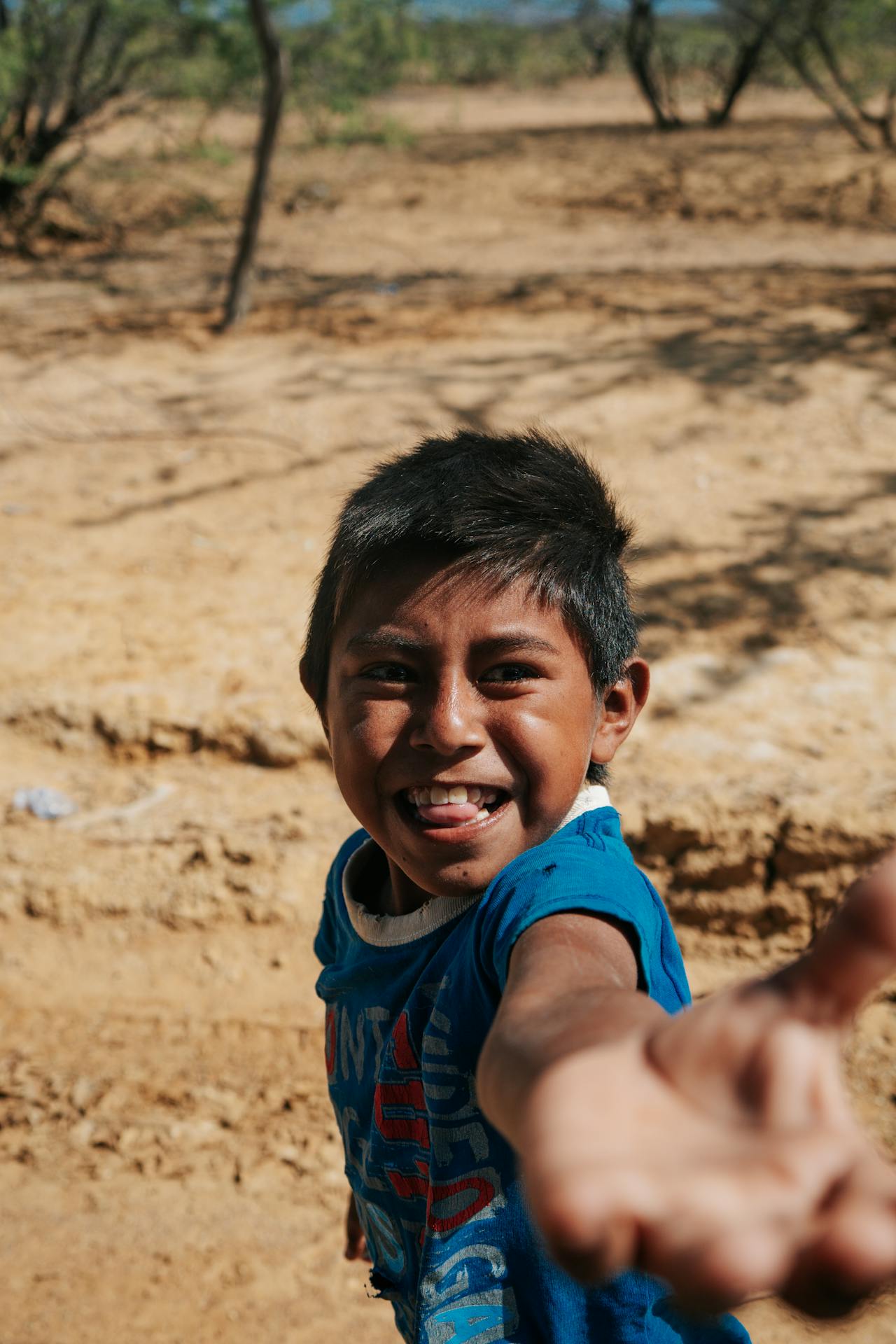Corregimiento Juan y Medio, Municipio de Riohacha, departamento de La Guajira, Corregimiento Juan y Medio, Municipio de Riohacha, departamento de La Guajira, Colombia, Colombia
In collaboration with

June 2024 – July 2025
We rehabilitate the potable water supply system in its entirety. We protect the Afro-descendant community affected by the El Niño phenomenon. We provide spaces that guarantee their rights, considering their cultural context and the need for protection from violence.
Objectives
- Contribute to meeting basic water, sanitation, and hygiene needs.
- Improve knowledge about protection from various types of violence that may affect the community, including gender-based violence, racial discrimination, and other abuses affecting vulnerable populations.
Beneficiaries
550 direct
208 under 15 years old and 200 women.
Inhabitants of the 60 homes and the school that lack public services.
1,450 indirect
The entire population of the corregimiento to which the Los Moreneros community and its surroundings belong.

On the Ground
The Afro-Colombian community suffers from a lack of access to water and healthcare. There is a high rate of school absenteeism because students have to fetch water.
Los Moreneros is an Afro-descendant community in La Guajira, with a rich cultural heritage dating back to the destruction of the City of Moreno in 1858 by the Wayúu indigenous people. They face serious deficiencies that affect their quality of life: lack of access to drinking water, sanitation, and hygiene; they also lack nearby healthcare services.
Children and adolescents face additional factors that aggravate the situation, such as violence, human trafficking, school dropouts, child labour, recruitment into armed groups, and prostitution.
Although there are no records in La Guajira, it is known that diseases related to the lack of essential water, sanitation, and hygiene services directly impact illness and malnutrition. The lack of access to nearby healthcare centres makes diseases like diarrhoea and intoxication recurrent.
Students are also forced to miss school to fetch water, affecting their academic performance and future opportunities.
The El Niño phenomenon has also increased droughts, primarily affecting cassava and maize crops.

In Detail
The current system consists of an eight-meter deep well, with a reverse osmosis treatment plant that has never been used and requires repair, as do all system components. Additionally, they have a raised cement tank of approximately 30 m³, which has deficiencies and must be repaired to ensure its functionality. Although the water is sufficient to meet the demand, its quality is inadequate due to the lack of treatment.
The project proposes a complete system rehabilitation to ensure safe, high-quality drinking water supply.
We collaborate with the local government of Riohacha, the Afro Communities Directorate, and the Secretariat of Education, as the community has the Los Moreneros Ethno-educational Institution. We also have the support of the GIFMM (Interagency Group on Mixed Migration Flows) in Colombia, a humanitarian coordination platform composed of UN agencies, international and local NGOs, and other humanitarian actors; its goal is to coordinate the response to the needs of migrants, refugees, and host communities in the country, especially in humanitarian emergency contexts such as the one caused by the Venezuelan migration crisis.
We conduct training on basic water, sanitation, and hygiene concepts and promote the creation of healthy environments in communities and the dissemination of environmental protection policies and protection routes within communities.
The intervention is structured in the following activities:
- Rehabilitation of water infrastructure suitable for human consumption.
1.1 Rehabilitation of the existing water treatment system
1.2 Monitoring water quality - Training in water, hygiene, basic sanitation, and solid waste management in the community.
2.1 Formation of the water committee to ensure the long-term sustainability of the intervention
2.2 Training in water, sanitation, hygiene, and waste management - Training in access to rights and incident prevention mechanisms.
3.1 Dissemination of protection routes and mechanisms to the community.

Prospects for sustainability
The project has been designed considering the needs identified by the community most affected by the droughts caused by the El Niño phenomenon. The project’s added value lies in its comprehensive approach: in addition to providing sustainable access to safe water, the initiative seeks to provide protective spaces that guarantee their rights, considering the cultural context, which also ensures sustainability by empowering the community.
The proposed solution is adapted to the characteristics of the families and their environment, and they are committed to ensuring the system’s sustainability. To this end, in addition to awareness-raising activities, the project will implement training in system operation and maintenance, water committee management, tariff establishment, etc.
The local authorities of the municipality have actively participated in the entire identification phase and are committed and responsible for supporting the community to ensure the system’s sustainability. We guarantee they develop the capacity to properly and permanently manage and maintain the systems and equipment provided. To this end, we formed a Water Committee as the basis for community participation and training, an essential condition to guarantee sustainability. The Committee carries out training plans and works transversally and in coordination with local leaders and authorities. This ensures that the system functions appropriately and creates synergy between the authorities and the communities to guarantee intervention in case of technical issues or breakdowns.

